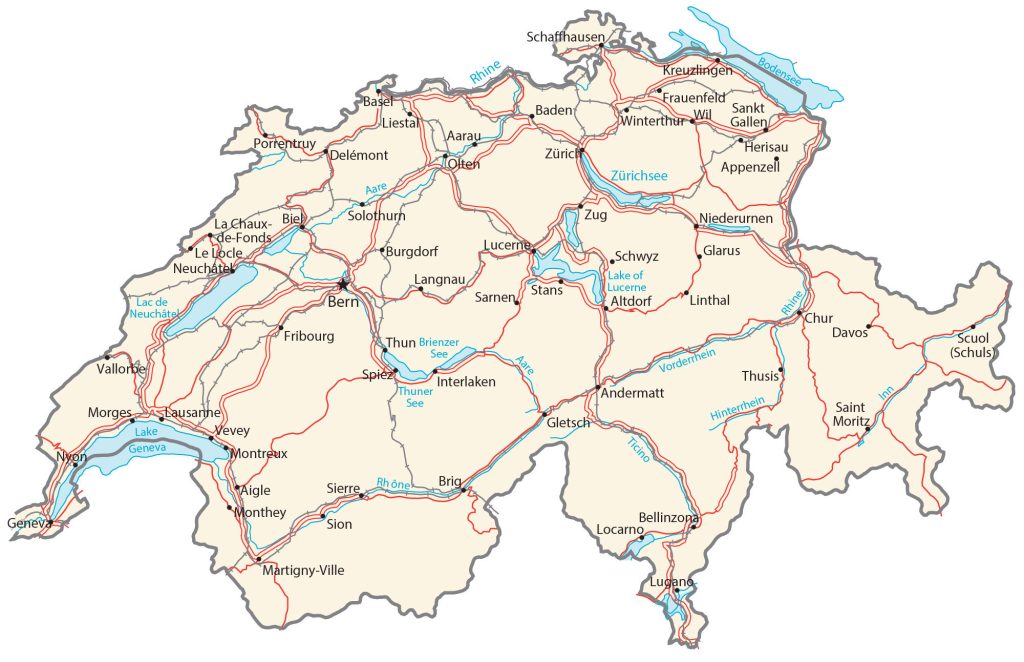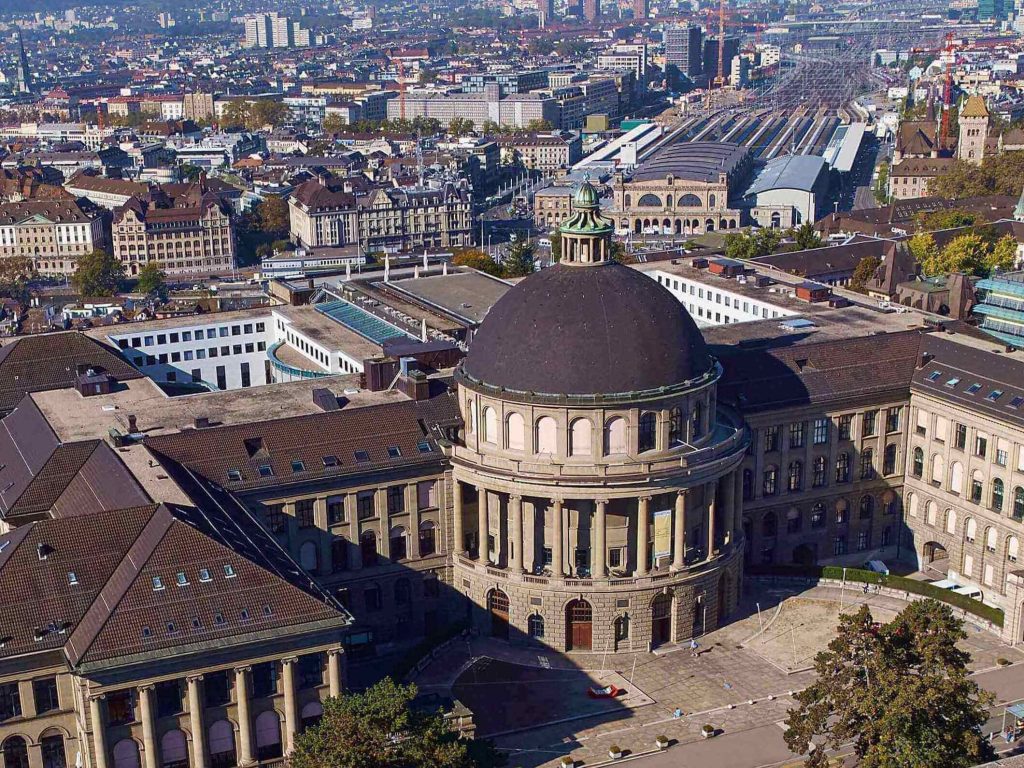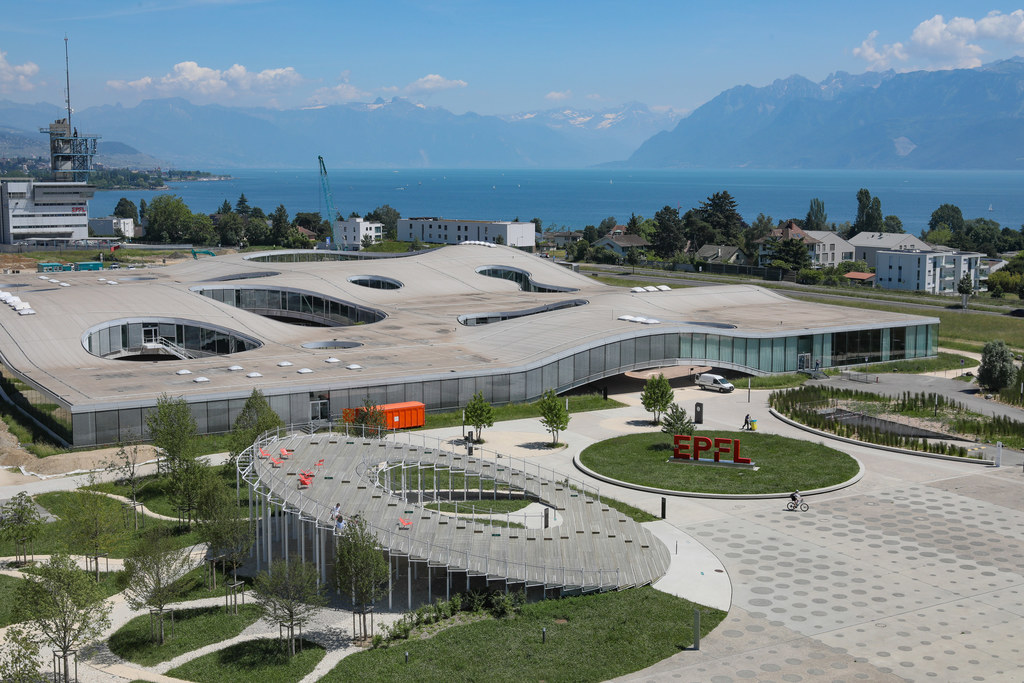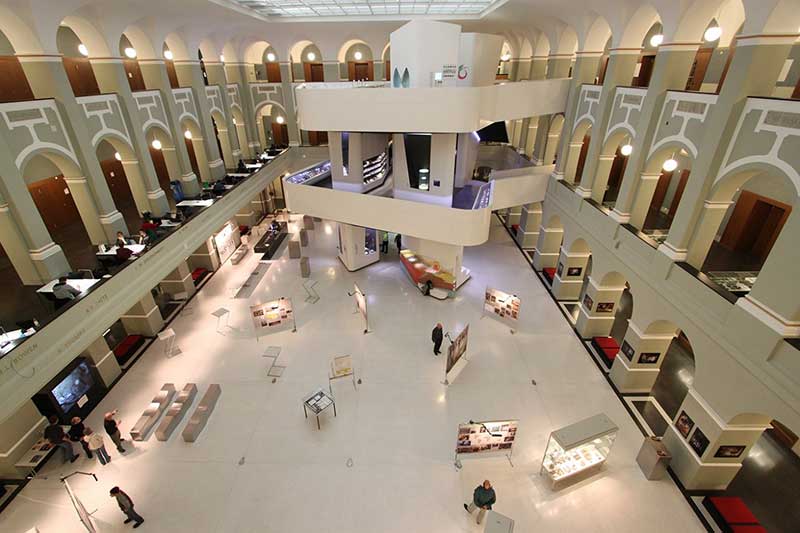In the heart of Europe, where the peaks of the Alps reach the sky and the turquoise lakes sparkle, lies a beautiful and green country called Switzerland. This beautiful land, with pristine and untouched nature, rich history and diverse culture, is a paradise for tourists and nature lovers. The lush valleys, covered with flowery meadows and thick forests, have created a unique landscape that will captivate every viewer. The snow-capped peaks of the Alps, the highest of which is called Montrose, have given Switzerland a special grandeur. A trip to Switzerland will be an unforgettable experience. Whether you’re looking to hike the mountains, explore the cities, taste the local delicacies or immerse yourself in the country’s rich culture, Switzerland has something for everyone.
In addition, the strong economy, modern education system and advanced healthcare have made Switzerland one of the most dreamy countries in the world to live in. Today, in this article, we are going to introduce the country of Switzerland from 0 to 100. Stay with us.
Switzerland - the most dreamy country in the world
Switzerland is a beautiful and green country located at the intersection of Central, Western and Southern Europe, with beautiful nature, numerous rivers, high and stable mountains along with numerous historical attractions, with a strong economy, strong educational and medical infrastructure and water and Favorable weather has made it one of the best countries in the world to travel or live in. The population of this country is more than eight and a half million people who live in an area of 41,285 square kilometers and their official language is German. Of course, it is worth mentioning that in addition to German, Swiss people also speak French, Italian and Romansh. Switzerland is one of the most developed human countries in the world, and the per capita income of its people reaches 80,000 euros, which makes them the highest income people in the world.
In addition to the mentioned cases, Switzerland’s membership in the Schengen Agreement has made it possible for people to travel to other countries in the Schengen area by receiving a Swiss visa. The introduction of Switzerland does not end here. Stay with us to provide you with more complete information about this country.
History of Switzerland
The tumultuous history of Switzerland goes back to ancient times. At that time, different Celtic tribes lived in this land. In the first century BC, the Romans conquered and colonized the region. After the fall of the Roman Empire, Switzerland was dominated by various Germanic tribes. In the Middle Ages, three main states were formed in Switzerland: Uri, Schwyz and Unterwalden. These states announced their union in 1291 by signing the “federal agreement”. This treaty is known as a turning point in the history of Switzerland and established the basis for the formation of the Swiss Confederation. The Swiss Confederation faced many challenges over the centuries. This country was involved in several wars with Austria and Burgundy and was trying to maintain its independence. Finally, in 1648, with the signing of the Treaty of Westphalia, Switzerland officially separated from the Holy Roman Empire and became an independent country.
In the 18th and 19th centuries, Switzerland witnessed numerous political and social developments. The French Revolution and the Napoleonic Wars had a great impact on this country. In 1815, after the defeat of Napoleon, the Congress of Vienna recognized the independence and neutrality of Switzerland. In the 20th century, Switzerland became a modern and industrialized country. This country remained neutral in both world wars and became a refuge for displaced people and refugees. After World War II, Switzerland became one of the richest and most developed countries in the world.
Today, Switzerland is a federal, democratic country made up of 26 states. Maintaining its neutrality, this country plays an active role in international organizations such as the Red Cross and the United Nations. Switzerland is famous for its beautiful natural scenery, historic cities, rich culture and high standard of living.
Geography of Switzerland
Switzerland is a mountainous country located in the heart of Europe. About 60% of the area of this country is covered by the Alps. The highest peak of Switzerland, Montrose, with a height of 4634 meters, is located in this mountain range. Green valleys, covered with flowery meadows and dense forests, have created a unique landscape among these mountains. In addition to mountains, Switzerland is also famous for its many lakes. There are about 1500 lakes in this country, the largest of which is Lake Geneva. Located in the southwest of Switzerland, this lake is also known as the “Little Sea”. The main rivers of Switzerland are the Rhine, Rhone, Ticino and Limmat, which play an important role in the country’s economy and transportation.
It is also interesting to know that there are about 2000 natural glaciers in Switzerland, which are the source of water for many rivers in this country. Switzerland borders Italy from the south, France from the west, Germany and Austria from the north, and the small country of Liechtenstein from the east. The neighborhood with these important European countries has had a great impact on the improvement of Switzerland’s political and economic relations.

Switzerland weather
In the following, we are going to investigate the weather conditions of this country in the northern, southern, eastern and western regions. Stay with us.
In the north of Switzerland, we see cold and snowy winters, which makes the average temperature in the winter season in this area to be between minus two and four degrees Celsius. But on the other hand, in the north of this country, there are pleasant summers. The average temperature in July (the hottest month of the year) is between 15 and 18 degrees Celsius, which is a good time to travel to this country.
South of this country, winters are milder and less snowy than in the northern regions. The average temperature in January is between 0 and 2 degrees Celsius, while in the hot months of the year, we see an average temperature of 20 to 22 degrees Celsius in these areas.
But the climate of the eastern parts of Switzerland is influenced by the Alps, which results in cold and snowy winters. The average air temperature in the cold seasons of the year is between -3 and -5 degrees Celsius. But on the other hand, the summer season brings moderate weather with an average temperature of 14 to 16 degrees Celsius. Note that eastern Switzerland is one of the rainiest areas.
Under the influence of Lake Geneva, western Switzerland has a mild climate with little snow in winter and a warm and sunny climate in summer. The average air temperature in winter is between 1 and 3 degrees Celsius and in summer between 21 and 23 degrees Celsius.
The most important cities of Switzerland
Switzerland is a beautiful and fascinating country, famous for its natural landscapes, historic cities and rich culture. Meanwhile, some cities of this country are more important and popular. In the following, we will introduce five important cities in Switzerland. Stay with us.
Bern
Bern, as the capital of Switzerland, is located in the center of the state of Bern, and with about 150,000 Swiss people, it is the fifth most populous city in the country. The official language of the people of this city is German, but they speak a different dialect called Bernese German. The quality of life of the people of this city is so high that in recent years the city of Bern was able to be recognized among the top 10 cities in the world for living.
Zurich
With a population of more than 420,000 people, Zurich is the largest city in Switzerland and the economic hub of this country. This city is located in the northeast of Switzerland, next to Lake Zurich. Zurich is known as the main center of banking and finance in the world and is also home to a large number of international companies, renowned universities and educational institutions. In addition, Zurich is considered one of the most important cultural centers of Europe with numerous museums, art galleries, theaters and concerts. Among the tourist attractions of Zurich, we can mention Grossmünster Cathedral, Bahnhofstrasse, Zurich Zoo, Museum of Fine Arts and Otlieberg Mountain.
Geneva
With a population of over 200,000 people, the city of Geneva is known as the second largest city in Switzerland, located in the southwest of Switzerland and next to Lake Geneva. As the European headquarters of the United Nations, Geneva is also home to a large number of other international organizations such as the Red Cross and the United Nations High Commissioner for Refugees, which has made Geneva one of the most important diplomatic and international centers in the world. Jheto Fountain, Religious Reform Monument, International Red Cross and Red Crescent Museum, English Garden and Lake Geneva are among the most popular and most visited tourist attractions of this city.
Basel
Basel is the third largest city in Switzerland with a population of over 180,000 people. This city is located in northwestern Switzerland along the Rhine River and is known as one of Switzerland’s important cultural centers for its numerous museums, including the Basel Art Museum, the Bieler Foundation Museum, and the Tingley Museum. Among the most important tourist attractions in Basel are the Basel Cathedral, the Market Square, the Basel Zoo, and the Basel Art Museum. Every year, thousands of people from all over the world travel to Basel to visit these attractions.
Lucerne
Another important city of Switzerland located in the center of this country is the city of Lucerne. With a population of more than 80,000 people, this city is considered one of the most important tourist centers in Switzerland, and its location next to Lake Lucerne has allowed us to witness the excellent weather in this city. Lucerne’s historical attractions include the Capelbrook Wooden Bridge, Water Tower, Lucerne Castle, and St. Leodgar’s Cathedral.
The economy of Switzerland
Switzerland is a small but rich country that has become one of the richest countries in the world based on its strong and dynamic economy. The service sector plays a very important role in the Swiss economy. About 70% of the country’s gross domestic product is obtained through the service sector. This sector includes activities such as finance, banking, insurance, tourism, transportation and professional services. Industry is also an important part of the Swiss economy. About 25% of the country’s gross domestic product is obtained through the industry sector. The most important Swiss industries are chemical, pharmaceutical, machinery, watchmaking and precision instruments industries. It is worth noting that agriculture has a small contribution to the Swiss economy, but it plays an important role in preserving the environment and producing high-quality food. About 0.6 percent of the country’s gross domestic product is obtained through the agricultural sector.
Switzerland is a country with high political and economic stability, which has made domestic and foreign investors confident in investing in this country. The country also has a skilled and educated workforce that has made Switzerland globally competitive in various fields, including finance, banking, information technology, and engineering. On the other hand, Switzerland’s neutrality in world wars and international conflicts has made this country a safe haven for investors and the rich. It is worth mentioning that the existence of a lot of capital in Switzerland has led this country to such a degree that it is known as one of the most expensive countries in Europe and the world today.
The reputation of Swiss banks: stability, security and confidentiality
Swiss banks are known worldwide for their stability, security and confidentiality. This reputation is due to several key factors that we will discuss below.
Political and economic stability: Switzerland is a country with high political and economic stability. This has caused the banks of this country to be considered as a safe place to keep money and capital.
Strong banking laws: Switzerland has strong banking laws that protect customer deposits from various risks. These laws include bank secrecy laws, anti-money laundering laws, and bank bankruptcy laws.
Excellent customer service: Swiss banks are known for providing excellent customer service to their customers. These services include providing financial advice, wealth management and private banking services.
Bank Secrecy: Switzerland is famous for its bank secrecy laws, which allow bank customers to open bank accounts without revealing their financial information.
Healthcare in Switzerland
Switzerland has a high level of healthcare due to the policies that the government has considered in the field of healthcare. It is interesting to know that all people living in Switzerland or residents of this country who live in this country for more than three months are required to be insured in a health insurance company. Compulsory health insurance in Switzerland covers a wide range of health services, including outpatient care, hospitalization, drugs and specialized treatments. On the other hand, the costs of the Swiss healthcare system are high. The Swiss healthcare system is financed through a combination of premiums paid by the insured, government subsidies and direct payments from patients. But in general, the high quality of doctors and medical and health centers of this country has satisfied people, and many people from all over the world travel to Switzerland every year to perform medical activities.
The best universities in Switzerland
Switzerland is known worldwide for its high-quality education system and prestigious universities. Meanwhile, some universities of this country have more reputation and prestige. In the rest of the article, we are going to introduce three of the top universities in Switzerland. Stay with us.
Federal Institute of Technology Zurich
This university was established in 1855 and is known as one of the oldest and most prestigious technical universities in the world. ETH Zurich conducts leading-edge research in various scientific fields, including engineering, basic sciences, humanities and social sciences. The Federal University of Technology Zurich is consistently ranked among the top universities in the world. In the QS World Ranking, the university is ranked 12th in the world in engineering and technology and 14th in the world in natural sciences. This university has more than 22 thousand students from all over the world. ETH Zurich graduates work in a variety of careers around the world, including engineering, science, business and government.


Federal Institute of Technology Lausanne (EPFL)
The Lausanne Federal Institute of Technology was founded in 1969 and is known as one of the youngest top universities in the world. EPFL conducts leading-edge research in various scientific fields, including engineering, basic sciences, humanities and social sciences. This university has more than 10 thousand students from all over the world. EPFL graduates work in a variety of careers around the world, including engineering, science, business and government. The Lausanne Federal Institute of Technology has been ranked 15th in the world in the category of engineering and technology and 16th in the world in the category of natural sciences in the latest rankings.
University of Zurich
This university was founded in 1833 and is known as the largest university in Switzerland. The University of Zurich conducts leading-edge research in various scientific fields, including the humanities, social sciences, basic sciences, medicine and law. The University of Zurich is recognized as one of the best universities in the world, ranking 65th in the world in the category of humanities and social sciences and 50th in the world in the category of medicine. This university has more than 28,000 students from all over the world and the degree offered by it is very valuable.

Top tourist attractions in Switzerland
Switzerland is a beautiful and fascinating country, famous for its natural landscapes, historic cities and rich culture. Meanwhile, some of the country’s attractions are more popular and beautiful. In the following, we will introduce five of the best and most beautiful tourist attractions in Switzerland. follow us.
Matterhorn mountain
The Matterhorn is one of the most famous mountains in the world, located on the border between Switzerland and Italy. This mountain is famous for its unique pyramid shape and is recognized as one of the symbols of Switzerland. Today, the Matterhorn is a popular destination for hikers and tourists. There are different routes to climb this mountain, ranging from easy to difficult. There are also numerous hiking and biking trails around the Matterhorn that pass through beautiful natural scenery.
Lucerne Lake
This lake is one of the largest and most beautiful lakes in Switzerland, which is located in the center of the country and is famous for its beautiful natural scenery, towering mountains and historic villages. There are various activities around Lake Lucerne such as boating, cruising, swimming, fishing and hiking. It is worth mentioning that in this area there are a number of historical castles, museums and churches that can be visited.
Rhine Falls
But let’s introduce the Rhine waterfall, the largest waterfall in Europe with a width of 150 meters and a height of 23 meters, which is located in the north of the beautiful country of Switzerland. The spectacular view of this waterfall has caused many people from all over the world to travel to this area every year. The presence of walking paths next to historical castles and cozy restaurants cafes next to this waterfall brings an attractive experience to visitors.
Alps glaciers
Alpine glaciers are one of the largest and most spectacular natural glaciers in the world, located in the heart of the Alps and creating a spectacular view to become a popular destination for hikers and tourists. The main activities that take place in this place are water and ice sports and competitions, such as skiing, snowboarding, etc.
Switzerland national ceremonies
Switzerland is a country with a rich history and culture, where there are many local traditions and customs. These events and festivals are an opportunity for Swiss people to come together, enjoy their culture and celebrate their identity. In the following, we will introduce three local ceremonies of the Swiss people. Stay with us.
Fasnacht
This festival, also known as the Swiss Carnival, is a festival that takes place throughout Switzerland in the winter before Easter. This festival has its roots in ancient times and was a time to drive away the spirits of winter and welcome spring. During this festival, people wear disguises, wear masks and parade through the streets. Local bands perform in the streets and people dance and sing. Traditional Swiss food and drinks are also served in this festival. Fashion fairs are held all over Switzerland, especially in the cities of Basel, Lucerne and Zurich.
Tellsschüssen
Archery, also known as William Tell Archery, is a festival held every August in the Swiss town of Alterdorf. This festival is held in memory of William Tell, the national hero of Switzerland, who is said to have saved himself from the tyranny of the tyrant ruler by shooting an apple on his son’s head in the 14th century. During this festival, which is held in the Swiss city of Alterdorf, local people participate in archery competitions. Also in this festival, there are traditional shows, music and dance.
Alpabzug
The Alp Festival, also known as Return from the Pasture, is a festival held in Switzerland in autumn. This festival was a time to celebrate the return of cattle from the mountain pastures to the valleys. At the Alpine Festival, cows are decorated with flowers and bells and paraded through the streets, local people dress in traditional costumes and celebrate with music and dance. Traditional Swiss food and drinks are also served in this festival. The Alpine Festival is held in many villages and mountain towns in Switzerland.
We knew that Switzerland, with its many tourist attractions, dynamic and powerful economy, advanced educational and medical infrastructure and other positive features, is known as one of the best destinations in the world for traveling or living. Also, the country’s membership among the member countries of the Schengen Agreement has made it possible for people to travel to 26 European countries without the need for a separate visa. Thank you for joining us in this article. As you have seen, in this article, we have completely introduced and reviewed the country of Switzerland and introduced it from various aspects. We hope that the information presented in this article was useful for you. Nobility Immigration Institute works in the field of Schengen visa consultation. You can contact us for a free consultation.
